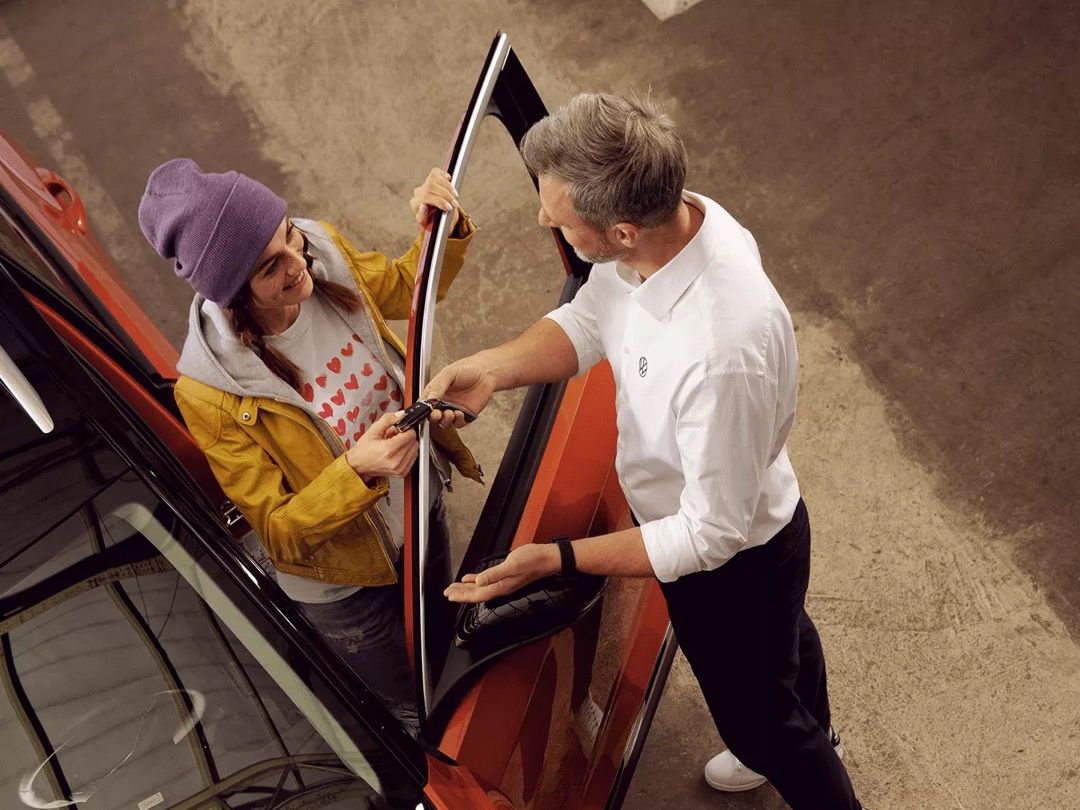If you are purchasing a used vehicle, the mechanical inspection is a must in order to avoid undesired outcomes! In fact, even if the vehicle’s exterior seems to be in perfect condition, you never know what lies in the mechanical and electronic components.
Here is a short guide for mechanical inspections, focusing on the important points to inspect before closing a sale… and avoid paying for a real lemon!
Prior to the purchase: What should be inspected on a used vehicle?
Before you even spend money on an inspection done by a garage or a mechanic, you can inspect certain points of the vehicle yourself, prior to purchasing it. If your observations are conclusive, then you could take the buying process a step further and make an appointment for a full mechanical inspection.
How to inspect a used vehicle before purchasing it?
Here are the points that you can look at yourself, when going to a used car dealership or to a private seller, to view the used vehicle from up close and in greater detail:
- Are the tires still in good condition?
- What does the body look like?
- Is the fabric cloth upholstery and the seats in good condition?
- Do the flashers, indicator lights, air vents and radio work?
- Can you open and close the windows easily?
- Does the mileage seem to match the vehicle’s age?
- Etc.
If your first impressions are good ones, then pay close attention to the way the vehicle feels once you take it out for a test drive. Do you hear strange noises? Are the brakes responding properly? Do you hear knocking or banging? Are accelerations smooth?
Has the test drive been a success? Then you will want to take it to your local garage for a more thorough mechanical inspection! Moreover, you should take a look at the RDPRM (Registre des droits personnels et réels mobiliers) to find out if the vehicle is free from debt (minimal fees) so that you can ensure that you are not purchasing a debt at the same time as you are purchasing the vehicle.
Red flags: Do not purchase the vehicle if…
Some points serve as indicators that you should be on high alert. Unfortunately, there are used cars that should definitely not be purchased, no matter the make or model! Here are the amber alerts that should have you on your toes:
- The seller refuses to have you take the vehicle out for a test drive;
- The low mileage seems too good to be true and/or does not seem to correspond to the vehicle’s general state or age;
- You cannot gain access to the vehicle’s history;
- The seller or dealership refuses that you get the vehicle inspected or insists on their own garage or mechanic.
How do you get a car inspected? Nothing could be easier: just make an appointment with a specialist in whom you trust and with whom you are confident you’ll get accurate information regarding the vehicle you want to purchase.
What are the seller’s obligations?
What are the seller’s obligations on a used vehicle? There are many! Under article 1726 of the CCQ it is written that “the seller is bound to warrant the buyer that the property and its accessories are, at the time of the sale, free of latent defects which render it unfit for the use for which it was intended or which so diminish its usefulness that the buyer would not have bought it or paid so high a price if he had been aware of them”.
The seller is bound, however, to warrant against any latent defect known to the buyer or any apparent defect; an apparent defect is a defect that can be perceived by a prudent and diligent buyer without any need of expert assistance.”
Moreover, a seller must:
- Clearly display the vehicle’s sales price and mileage;
- Display the date of manufacturing, serial number, make, model and engine size;
- Mention all repairs done since the vehicle has been in their possession.
It is important to know that legal warranties, as stated by law, are only applicable in the advent that you are dealing with a merchant or trader; a private seller does not fall under these obligations. They can, however, sell a vehicle without any legal warranty, at the buyer’s own risk. Nevertheless, the legal warranty against latent defects persists.
What rights do you have when purchasing a used car? According to the Consumers Office (l’Office de la protection du consommateur), should you find a latent defect, the seller could be held accountable and might have to compensate your or, in some cases, have to cancel the sale. In any case, should you find a latent defect, you must communicate with the seller quickly.
If the seller refuses to rectify the situation, you can always turn to the Small Claims Court or the Civil Division of the Court of Quebec. Here, with VW Lauzon Boisbriand, we are proud to offer quality used Volkswagen vehicles that have been thoroughly inspected prior to being made available for sale.
Regular inspections to be done after purchasing a used vehicle
You must obviously be aware that although your used vehicle is in excellent condition, a used car is exactly that –used and not new- and that a regular inspection on your used vehicle will help you detect problems quickly, whenever they arise.
You should refer to the maintenance calendar for your vehicle so that you can anticipate a part replacement, for example, before it reaches the end of its useful life.
On top of checking regularly on certain parts like brake pads, oil levels and headlight or taillight bulbs, for example, you should also pay close attention to the engine, the transmission and the exhaust system. The older your vehicle, the more chances there are for these parts to cause problems in the mid or long term.
It will be our pleasure to help you maintain your Volkswagen in an optimal state. All you have to do is make an appointment with our service department!
How often should I get a mechanical inspection?
Usually, a detailed inspection of your vehicle is done at each oil and filter change. You can also have your vehicle inspected when you are getting your tires installed. No matter what you choose, don’t push back the maintenance schedule just because you think there are no problems with your car!
Purchasing a used car is not rocket science; but do make sure to be properly prepared and to know what traps to avoid!










